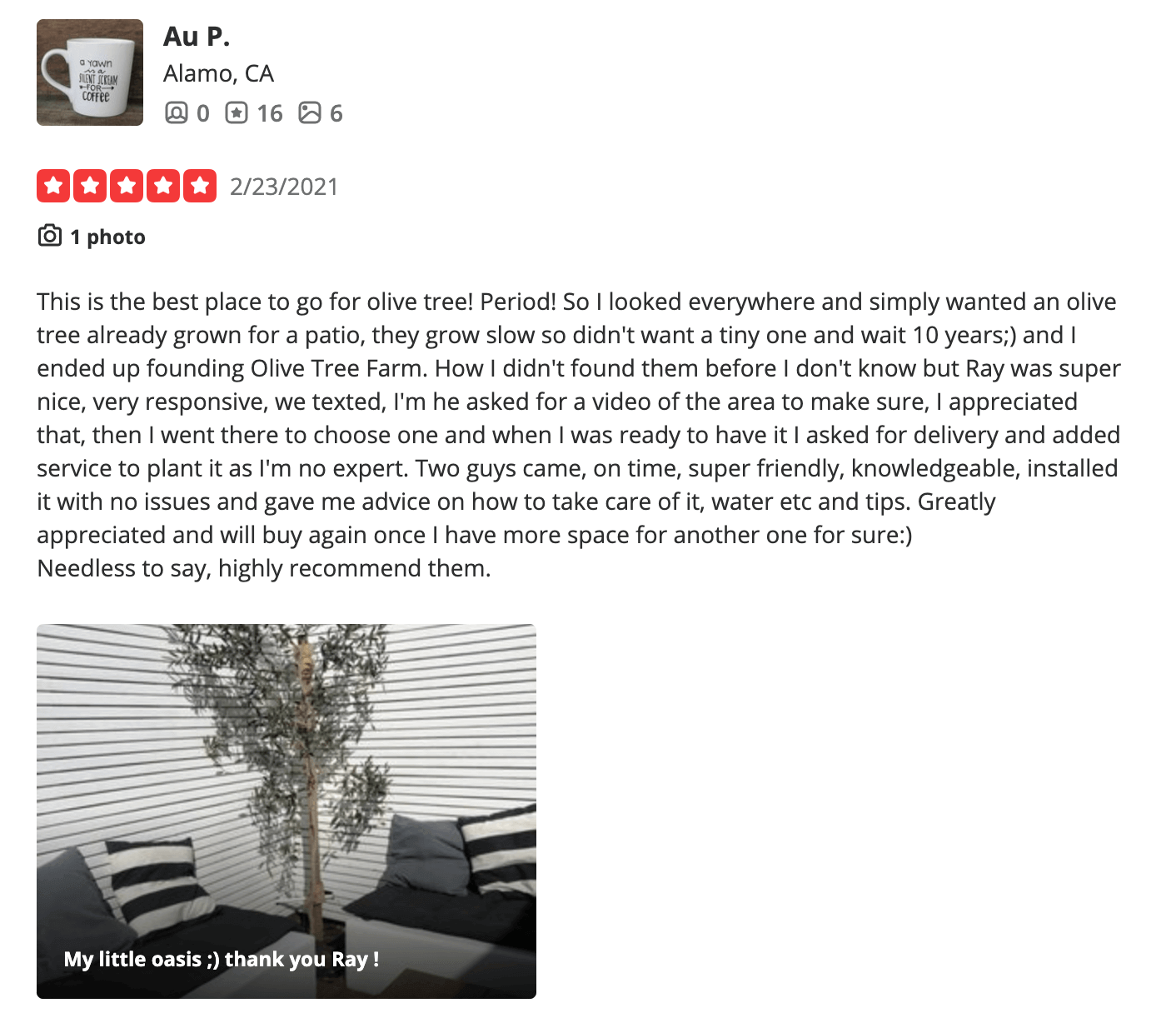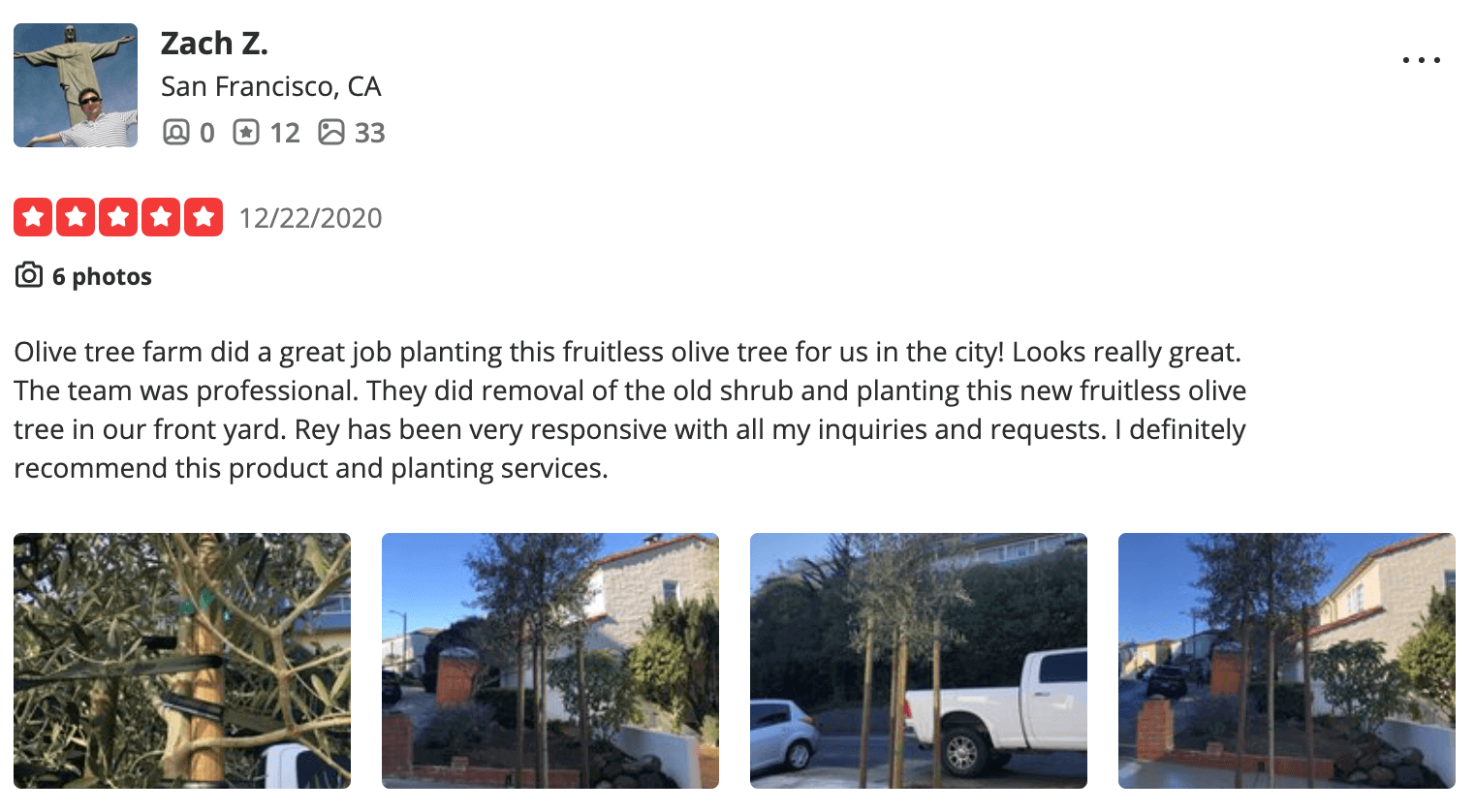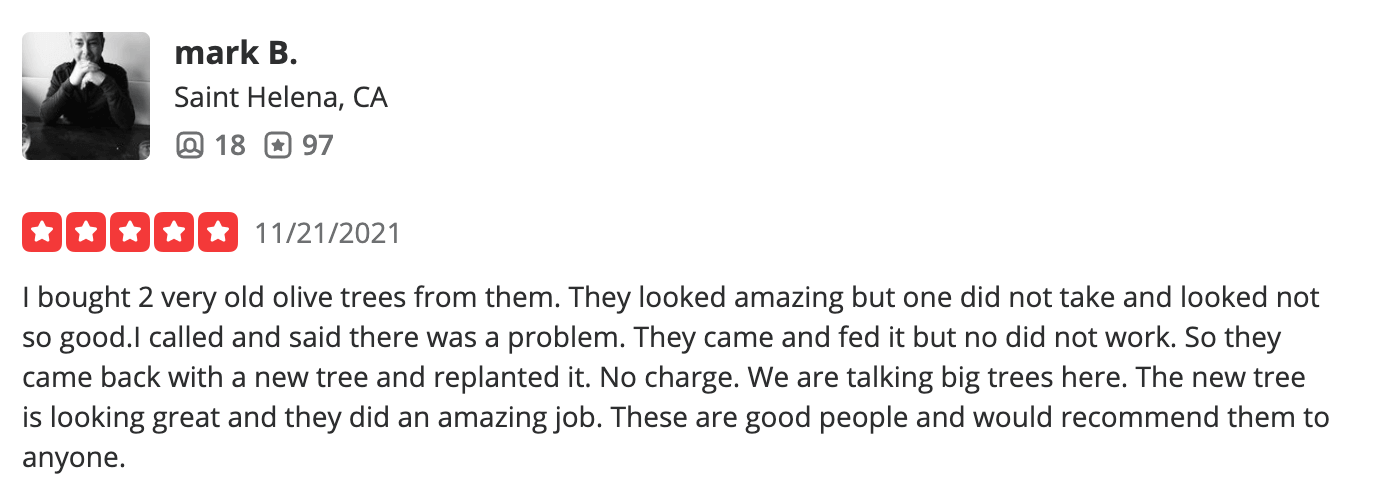Koroneiki Olive Trees
Koroneiki olive trees are a popular variety of olives originating from Greece. Koroneiki olive trees are grown commercially all around the globe, mainly for their nutrient-rich oil. Although the olives grown on Koroneiki olive trees are small, they produce 27% of oil content high in antioxidants like oleic acid. The rich green oil tastes slightly bitter with its pungency, but the flavor of herbal fruitiness is more dominating. Its shelf life is longer than other varieties, and there are countless health benefits of Koroneiki oil.
You will mostly see Koroneiki olive trees as super-dense plantings because of their wide and open canopies. However, you can also plant one by your patio or porch to reap multiple health benefits of Koroneiki olive oil. It can be pruned to keep as an exotic house plant. The leaves of this olive cultivar are thick with sharp blades. The olives turn black when they are fully ripened.
- Fruiting Specimen
- Bloom (Spring)
- Moderate
- Color (Grey Green)
- Olive Oil (Sweet)
- Commercial Use
Care and Maintenance
You need to water them regularly at the start to let the roots develop extensively. They are drought-resistant, which means they won’t need as frequent watering once they are developed. Plus, they can also handle water, stress, and wind. However, this olive cultivar is less resistant to cold than others. Well-drained and slightly alkaline soils are best suited for Koroneikis like other olive trees, but this kind can grow in other conditions too.
| Quick Facts | |
| Origin | Greece |
| Scientific Name | Olea Europaea ‘Koroneiki’ |
| Family | Oleaceae |
| Tree Type | Single & Multi-Trunk Fruiting Specimen |
| Common Names | Olea Europaea ‘Koroneiki,’ ‘Psilolia,’ ‘Lianolia,’ ‘Vacikior’ or ‘Korani’ |
| Height | (Insert) |
| Toxicity | Non Toxic |
| Light | Full Sun |
| Watering | Drought-Tolerant |
| Soil | Well-Drained-Nutrient Poor Soil |
| Hardiness | Hardy Down to 20 to 30 °F |
| Foliage | Gray Green |
| Growth | Moderate |
| Olive Oil | Sweet |
Don’t Take Our Word, Hear What Our Customers Say!



Interested? We’d love to hear from you!
Call us at 707-732-6152 for a free consultation!
Looking for something else? We might have it for you...
Arbequina Olive Trees
Arbosana Olive Trees
Ascolana Tenera Olive Trees
Cerignola Olive Trees
Coratina Olive Trees
Itrana Olive Trees Kalamata Olive Trees
Koroneiki Olive Trees
Leccino Olive Trees
Little Ollie Dwarf Olive Trees
Majestic Beauty Olive Trees
Manzanillo Olive Tree
Maurino Olive Tree Mission Olive Tree
Pendolino Olive Trees
Picholine Du Gard Olive Trees
Picual Olive Trees
Sevillano Olive Trees
Swan Hill Olive Trees
Wilsonii Olive Trees
Zitoun Olive Trees